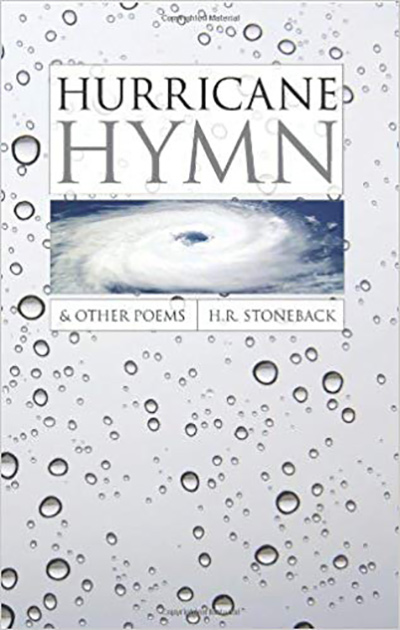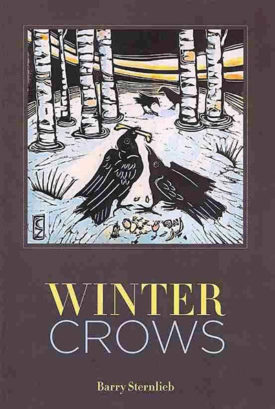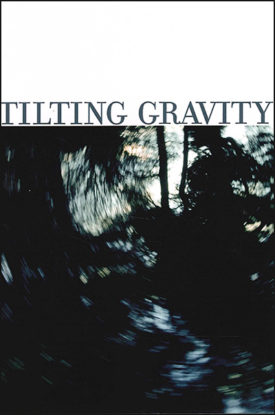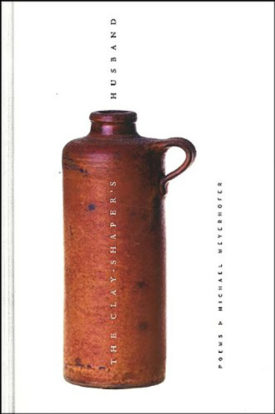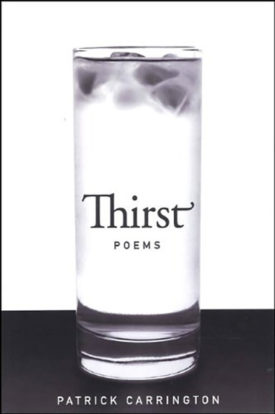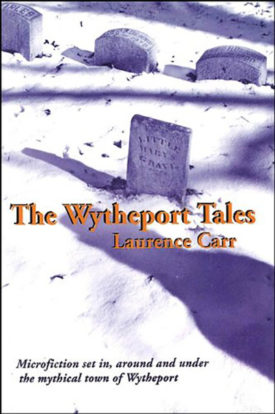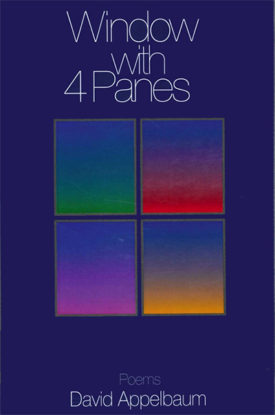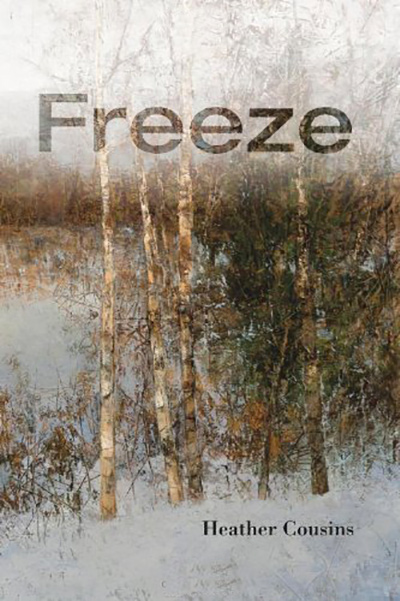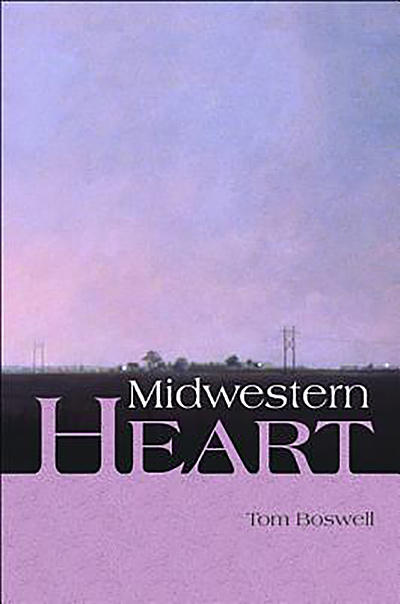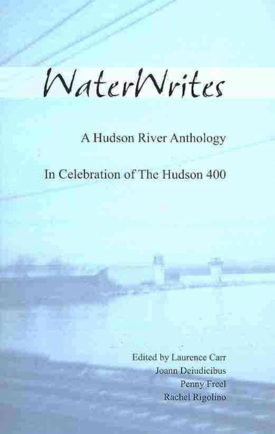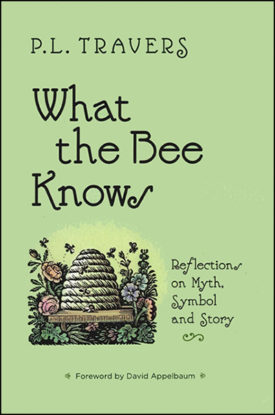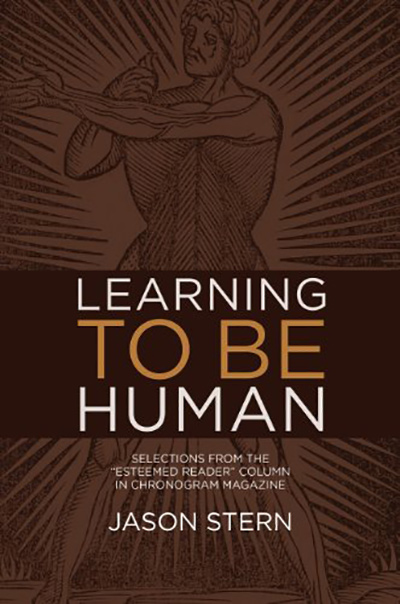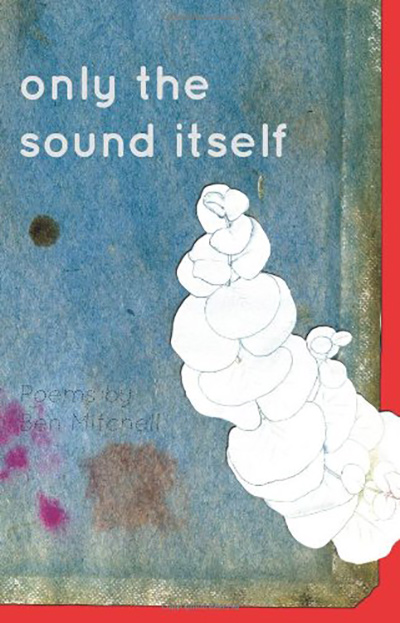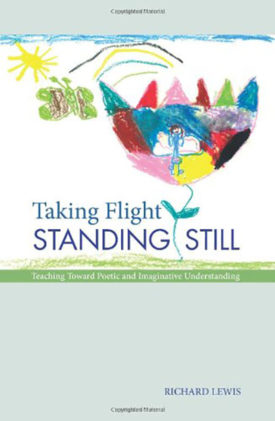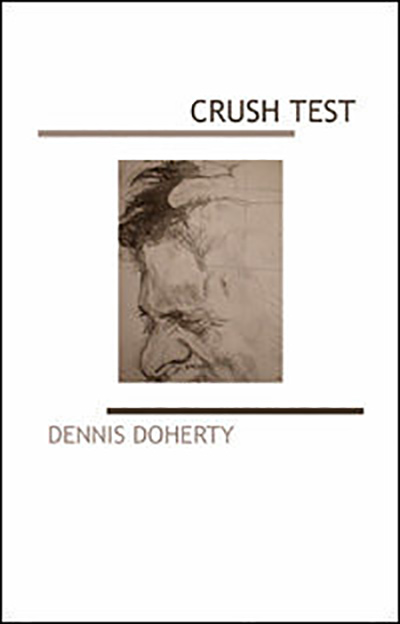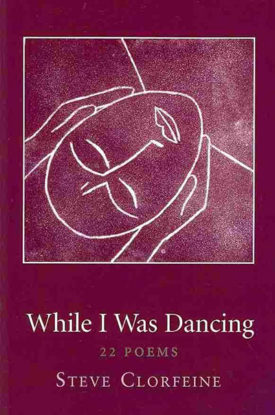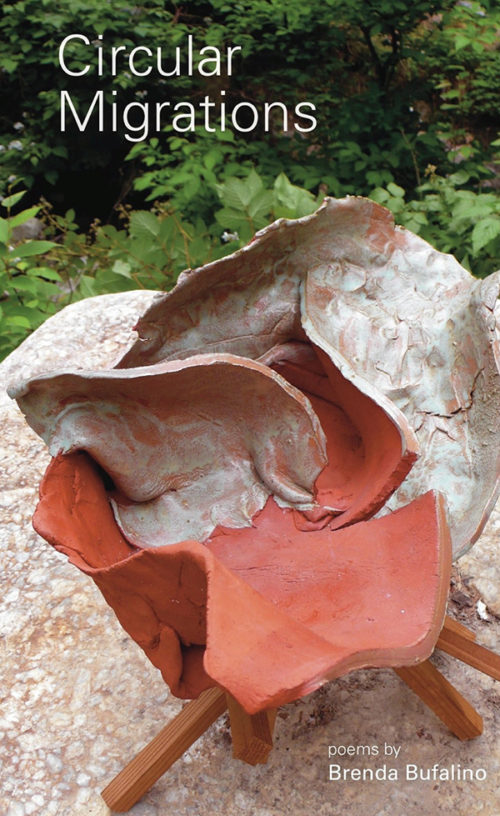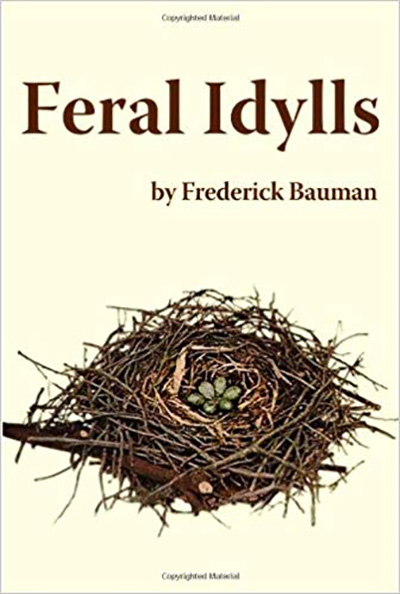-
Poetry cannot perform search and rescues. Words are not water or food or shelter. Grief cannot put a roof over storm-refugees. Compassion's not a substitute for action. Come in from the wind, let words restore power. Come in under the blue tarp of this Muse.... —from "Hurricane Hymn
-
"Winner of the Codhill Poetry Chapbook Award for 2009," Elizabeth Rees's Tilting Gravity shimmers like moonlight on tidewater, illuminating the ebb and flow of brokenness and recovery with rippling imagination and lyrical elegance."
—Pauline Uchmanowicz, final judge
2010 | 36 pages
-
ODE TO DOGS I am tired of hearing about dogs used as metaphors for the uncivilized. Imagine a world in which humans possessed at least twenty times as many olfactory receptors, able to distinguish the tang of cancer rising musk-like from the bedsheets next to a smoldering ash tray, able to detect that one drop of blood in every five quarts of water, to know what you did last night no matter how many times you soap-scrubbed the evidence. It does not take savagery but more love than we can muster to lick the hand you've sniffed, to love despite the perfume of sins we wear each day like a halo.
2008 | 38 pages
-
"Final Finalist for the Codhill Poetry Chapbook award for 2008, Sibyl James’s Pistols and Hearts captures the beauty and ruggedness of daily life in Mexico through inventive lyricism. Oscillating between English and Spanish, between declarations of love and regret, between the oracular and the ordinary, a transcontinental vision emerges, both deeply personal and fiercely public."
—Pauline Uchmanowicz, final judge
2009 | 36 pages
-
Poems Searching for Things to Worship Sorting through fluttering debris of thick boyhood days, tangle of jungle browned with our absence, I remember how you cupped water at Cedar Creek, your hands a chalice. And flowers you planted near the bank to make it your church, somewhere to sit in the greening comfort of a private prayer. A place one might see God and not be surprised.
"Winner of the Codhill Poetry Chapbook Prize for 2006, Patrick Carrington's Thirst reads like a novena, a plea for understanding and mercy." —Pauline Uchmanowicz, Final Judge2007 | 32 pages
-
Out of stockMicrofiction set in, around and under the mythical town of Wytheport Sometimes angst-ridden, sometimes whimsical, sometimes meditative, these short "biographs" depict the life and times of a unique place and its haunting residents. The Wytheport Tales draws inspiration from a range of authors: Dante, Carroll, Joyce, Eliot and Masters, as well as fantasists such as Cabell, Eddison and MacDonald.
" 'Time is warping in the palace,' Laurence Carr observes in The Wytheport Tales. And our nights and days are warping in these sly, canny (or are they uncanny?) poems. Most interested in the world when that world is changing, and by turns in-flected, de-flected, and re-flected, here fanciful, there matter of fact, Carr's tales summon twilight presences from the edges of experience, dark, restless, playful, and urgent."
—Robert Polito, Director, New School Writing Program
"Though it seems to begin in the land of Dylan Thomas's Nightwood, it extends beyond that into wonderfully evocative, mythic worlds that strike me as utterly original in its language and pace."
—Robert H. Waugh, The Monster in the Mirror: Looking for H. P. Lovecraft
"With The Wytheport Tales, Laurence Carr gives us a work that shimmers and twists, that undulates across the mind's eye like a tapestry. At times homely, at others baroque, at still others nightmarish, the collection fits multitudes between its covers. I'm eternally grateful to have been introduced to a sampling of Wytheport's denizens, and look forward to many return visits."
—John Langan, Mr. Gaunt
2006 | 54 pages
-
The ambiguity of snow Dog wishes, buried in squinty sun may never sprout deeper dreads down under may deface even terror’s stun gun before bright dawn pours on white cloth buffered over white strain and shows no blood on the collar— but the dead ground, bone’s crypt, dazzles, unwinds a drape to hide a corpse stuffed in.
Read a review of Window with 4 Panes, from the May 2009 issue of Chronogram magazine.2009 | 78 pages
-
"Winner of the 2012 Codhill Poetry Chapbook Award, Heather Cousins's Freeze, as sparse and elegant as winter branches, illuminates how time is both fixed and divisible, the human paradox both archetypal and mutable."
—Pauline Uchmanowicz, Final Judge
2013 | 30 pages
-
"Winner of the Codhill Poetry Chapbook Award for 2011, Midwestern Heart sings in the voice of a prairie prophet whose well-crafted verses bless landscapes, both visible and unseen, with amazed reverence."
—Pauline Uchmanowicz, Final Judge
2012 | 32 pages
-
A Hudson River Anthology This anthology of contemporary poetry and memoir celebrates the Hudson River and its environs in all of its breadth and depth. It brings together sixty Hudson Valley writers who explore what it means to be part of one of America’s great river systems: to live near it and sometimes on it, to travel it by sail, steam, oar and motor, to swim it, to gather food from it, and to have it as a constant in one’s ever changing life. The book was created as part of the Hudson 400 Celebration, but we hope that it will stand for many years as a testament to those native people, explorers, immigrants turned locals, and visitors who made the river part of their lives, and ultimately, a place to call home.
2010 | 131 pages
-
Out of stockReflections on Myth, Symbol, and Story "The Sphinx, the Pyramids, the stone temples are, all of them, ultimately, as flimsy as London Bridge; our cities but tents set up in the cosmos. We pass. But what the bee knows, the wisdom that sustains our passing life—however much we deny or ignore it—that for ever remains."
—P. L. Travers
2010 | 303 pages
-
Out of stock"This text must be a mirror. It must reflect the reader back to herself, so that the reader acquires a vision. It requires a power greater than the text to allow the reader to see with clarity. It is the additional matter of awakening the heart. Ultimately, a search is sustained by strong feeling for the adventure of being in light of one's inadequacy to venture forth."
—from the Foreword
A compilation of Stern’s columns from Chronogram in which he explores the intriguing concept of regional culture in its full meaning. Learning to be Human is a book about striving. The chapters are culled from a regular column in the Hudson Valley’s Chronogram magazine, over a thirteen year span. It is an inner account of a search for meaning in the light of the teachings of G. I. Gurdjieff, as well as Sufism, Buddhism, Taoism, and Judaism, in the context of the life of a seeker, lover, father, householder, athlete, publisher, and entrepreneur. The essays are a record of insights and experiences gleaned in light of a fundamental admonition: Know Thyself. What makes the book unique is its consistent return to the teachings of G. I. Gurdjieff as a key to unlocking not only the meaning of the world’s great traditions, but also the experiences of the life of a man in the world, spanning the ages of 25 to 40 years old. The style of writing varies from deeply personal, almost confessional, first-person narratives, to poetic observations, to pedagogic expositions of philosophical and religious ideas. There is a clear political point of view, but always tempered by an emphasis on self-knowledge and the reflection of the activities of people in the world in ourselves. Jason Stern is the publisher and co-founder of Chronogram. Jason Stern's meditative but acute reflections on current issues and community events seem to echo the insights of Emerson and Thoreau, viewing the cosmos through the details of current life, looking with humour on the vagaries of our minds and customs. His centering in the ideas of Gurdjieff, the Armenian Greek who startled people a hundred years ago now by his cutting insight into human folly, gives Jason an edge that puts him in a special category. But here is no jargon or harsh judgment. Here is a human voice, sparkling with warmth and softened in bemusement, a voice-over to the movie of human life he sees just outside his window. You can dip in almost anywhere and find yourself smiling, no matter how serious the topic. Such a compassionate observer is surely a reminder of our own conscience and compassion.—Anthony Blake
2010 | 270 pages
-
"These poems require us to approach with an uncorrupted humanity. The poems insist on dignifying us. They have an almost theological ambition in that they love us, not in spite of our imperfections, but because of them and in so doing they shock us into our better selves and guarantee us salvation. This is a book to be grateful for. Its generosity elevates us."
—Vince Cioffi Winner of the 1999 Stegner Fellowship in Poetry
Ben Mitchell's "Only the Sound Itself" reminds us to think about the experiences that made us who we are. This poetry acts as a wake up call to make us realize how hectic and crazy our lives have become. The theme of nature throughout the collection allows one to see the peace and serenity that used to exist and how the simplicity of life is lost as we take on responsibilities, fall in love, and eventually grow into adulthood.2010 | 45 pages
-
Out of stockTeaching Toward Poetic and Imaginative Understanding In this collection of recent essays and reflections, Richard Lewis shares his pursuit of teaching as a means of deepening a child's poetic and imaginative understanding. He makes clear, through examples of his own teaching and the thoughts and writings of children, how much of what each child brings with them, as they play and imagine, dream and wonder, is a necessary and profound part of our human consciousness and creativity. And throughout he asks us to listen to the conversation each of us began in childhood, to the flight and stillness of our own imagining, to those understandings and learnings, in ourselves and in children, that continue to be the basis, the poetry, of who we are—and the nature we inhabit. "Poets and children are natural companions. The child dreams up worlds apart, without instruction, and the poet has never outgrown these childhood necessities. When Richard Lewis comes to visit, the classroom suddenly opens to a sky filled with celestial beings, and butterflies arrive to carry us to distant planets. It is but a short distance from the poet's imagery to a child's sense of joy and sadness, and we readers take flight with the children as they find the words that express their feelings. Once again, Mr. Lewis shows us the hidden world of childhood and makes us want to change our own classrooms into magical places."
—Vivian Gussin Paley, Teacher and author of, among others, A Child’s Work: The Importance of Fantasy Play; and forthcoming from the University of Chicago Press, The Boy on the Beach
Touchstone Center Publications in collaboration with Codhill Press
2010 | 128 pages
-
"Comfort, fathers of nostalgic rue? I'm charged to deliver the new, but change has shifted the shape of me; pain has twisted the make of me from all I thought I knew. Nomadic mappers of the land, I'm lost. Am I the message, messenger, or the one who heeds what calls?"
2010 | 64 pages
-
22 Poems This collection of poems was written between 2004 and 2009. Working with various partners Steve Clorfeine developed a form, “moving and writing,” in which one person moves with eyes closed and the other witnesses the movement, after which both write, “free writing” style. Witnessed moving with eyes closed is based on a form called Authentic Movement, pioneered by Mary Starks Whitehouse and later by Janet Adler. They brought to a generation of dancers, educators, and therapists an improvised mindfulness-awareness practice, which Whitehouse called “movement in depth...moving and being moved.” What is revealed when the activity of imagining is primary, when the less visible or invisible becomes visible, when the substance of shapes, sounds, images, stories surfaces, mingles, and compounds and we are drawn deeper into the unknown and directed to mysteries?
2010 | 68 pages
-
Abraham Burickson's chapbook Charlie is an exploration of what it means to find oneself living without an instruction manual in a world filled with strangers. The poems follow Charlie and Sal, two very particular Everymen, as they navigate the emotional and intellectual straits of their lives, seeking meaning, pleasure, and some sense of self. The road is treacherous; pronouns jumble, rhythms overwhelm, and the intensity of sensual experience causes these poems to shimmer with longing and uncertainty. Charlie guides the reader on a journey that is as enticing as it is unsettling.
2010 | 45 pages
-
"I could make a picture book with cut-outs pop-outs and load-ins of Burrill Street long as a cobra snaking from above the train station all the way down past the monument to Kings Beach."
2010 | 85 pages
-
With each poem in this series, Bauman explores the life of an animal native to the Catskill region, delving into their secret suffering, fear, and determination. Through their daily struggles, he reveals the interconnected nature of our world and our shared fears. In his final poem, he extends these same fears and struggles to man through the mythic figure of Gilgamesh. Richly detailed and poignant, Feral Idylls asks us to consider existence and our place in the world.
2010 | 56 pages


